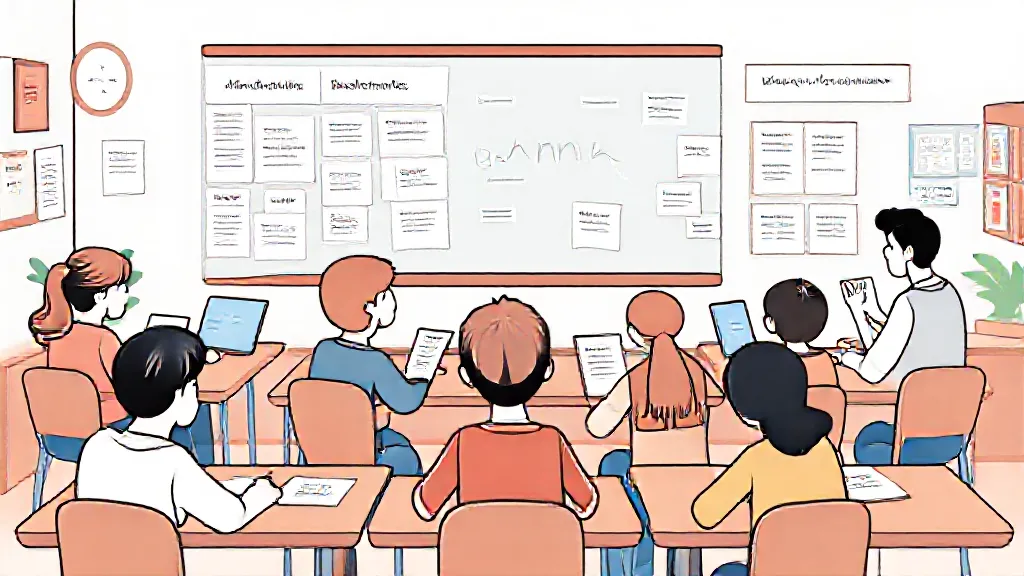The Importance of Grammar in Education
Grammar serves as the backbone of effective communication, enabling students to articulate their thoughts clearly and accurately. In an educational landscape where digital communication is prevalent, the ability to use grammar correctly becomes even more critical. Understanding grammar is not merely an academic exercise; it is an essential skill that influences students' writing, speaking, and overall academic success.
Traditional methods of teaching grammar often fall short in engaging students, leading educators to explore more interactive and dynamic approaches, such as grammar games.
Interactive Learning Through Games
Grammar games provide an interactive platform that encourages students to engage with the material actively. By transforming grammar lessons into enjoyable activities, students are more likely to participate and retain information.
These games can range from simple board games to complex online applications, all designed to make learning grammar fun and engaging. Research has shown that students who participate in game-based learning demonstrate improved motivation and a deeper understanding of grammatical concepts compared to those who learn through traditional methods.
Types of Grammar Games and Their Benefits
There are various types of grammar games, each catering to different aspects of grammar.
For instance, fill-in-the-blank games focus on vocabulary and sentence structure, while matching games may help students identify parts of speech. Online platforms like Kahoot! and Quizlet have emerged as popular tools for creating interactive quizzes that challenge students’ grammar skills in real-time. These games not only enhance understanding but also promote collaboration among students, fostering a sense of community in the classroom.
Engagement Through Competition
One of the most compelling aspects of grammar games is the element of competition they introduce. Students often thrive in competitive environments, where they can test their skills against peers. Competitions can take the form of team challenges or individual scoreboards, motivating students to perform better.
This competitive spirit can lead to increased participation and a greater willingness to tackle challenging grammar topics. Furthermore, the immediate feedback provided during these games helps students identify their strengths and weaknesses, allowing for targeted improvement.
The Role of Technology in Grammar Games
The integration of technology in education has revolutionized how grammar is taught.
Digital grammar games offer diverse formats, including mobile apps and online platforms that students can access anytime and anywhere. This accessibility allows for personalized learning experiences, where students can progress at their own pace. Additionally, technology facilitates adaptive learning, where games can adjust difficulty levels based on individual performance, ensuring that all students are adequately challenged.
Catering to Different Learning Styles
Every student has a unique learning style, and grammar games can cater to these differences effectively. Visual learners may benefit from games that incorporate graphics and animations, while auditory learners might prefer games that involve listening and speaking. Kinesthetic learners, who thrive on hands-on activities, can engage with physical games that require movement and interaction.
By accommodating various learning preferences, grammar games can make grammar instruction more inclusive and effective for all students.
Building Confidence Through Practice
One of the significant advantages of grammar games is the opportunity they provide for practice in a low-pressure environment. Students often feel anxious about making mistakes in grammar, which can hinder their willingness to participate in traditional classroom settings.
Games allow students to experiment with language without the fear of judgment. This supportive atmosphere encourages risk-taking and experimentation, ultimately building their confidence in using grammar correctly.
Future Directions in Grammar Education
As educational practices continue to evolve, the role of grammar games in the classroom is likely to expand.
Educators are increasingly recognizing the value of gamification in learning, not just for grammar but across various subjects. Future developments may include more sophisticated games that incorporate artificial intelligence to tailor learning experiences further. As technology advances, the potential for grammar games to enhance student engagement and understanding will only grow, making them an essential tool in modern education.
